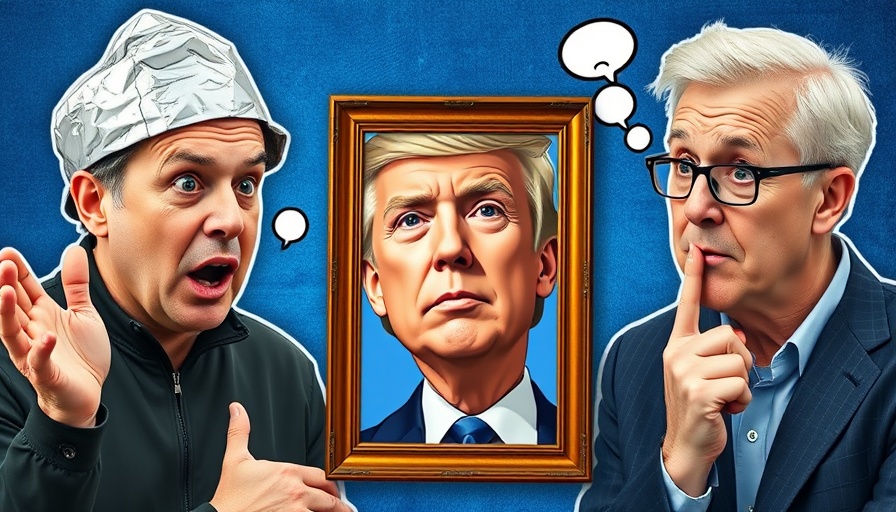
How Ben Shapiro's Latest Move Raises Eyebrows
In the ever-evolving landscape of conservative media, Ben Shapiro's latest campaign urging President Trump to pardon Derek Chauvin has sparked widespread debate. Supporters tout this as a bold move, while critics warn it may symbolize a disturbing trend within conservative commentary. This article demystifies the motivations behind such campaigns and their implications for American democracy.
In 'Ben Shapiro Sinks to New Low!', the discussion dives into the implications of Shapiro's campaign for Derek Chauvin's pardon, prompting a closer examination of his motives and the narratives presented.
Context and Controversy: The Situation with Derek Chauvin
Derek Chauvin was convicted of murdering George Floyd, an event that triggered global protests advocating for racial justice. Proponents of the pardon argue that Chauvin was unfairly treated, while opponents highlight the need for accountability. Shapiro's involvement in this contentious issue raises questions about the responsibilities of public figures to their audience and the narratives they promote.
Publicity Stunt or Legitimate Campaign?
Critics of Shapiro assert that his push for a pardon is less about justice and more about publicity. The campaign is linked to a dedicated website—pardonchavin.com—suggesting a marketing strategy aimed at increasing the Daily Wire's subscriber base. While Shapiro might frame this as an act of advocacy, the underlying intent appears to command attention and drive subscriptions, transforming serious issues into mere tools for profit.
The Broader Implications: Freedom of Speech and Accountability
This situation presents a broader dilemma regarding freedom of speech and the responsibilities that come with it. While conservative commentators like Shapiro champion individual liberties, campaigns such as this juxtapose freedom with accountability. It models a narrative where public figures can freely advocate for controversial opinions without fully grasping the societal ramifications, potentially misleading their audience.
Moving Forward: Engaging with Critical Thought
Diving deeper into the narratives presented in conservative media underscores the vital role of critical thought among audiences. Media consumers must challenge themselves to sift through opinions and understand the motives behind them. Engaging meaningfully with these topics is essential for nurturing an informed citizenship that can better navigate the complexities of modern governance.
In a world where narratives can be shaped and weaponized, it’s critical to stay informed and question the motivations behind media campaigns. Stay engaged with the issues that affect America’s democratic fabric!
 Add Row
Add Row  Add
Add 




 Add Row
Add Row  Add
Add 

Write A Comment